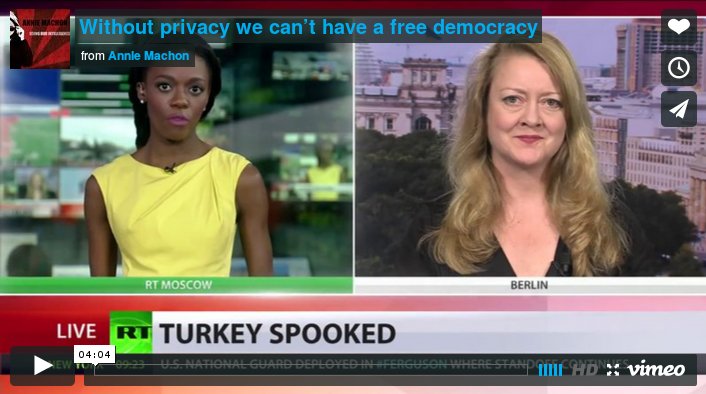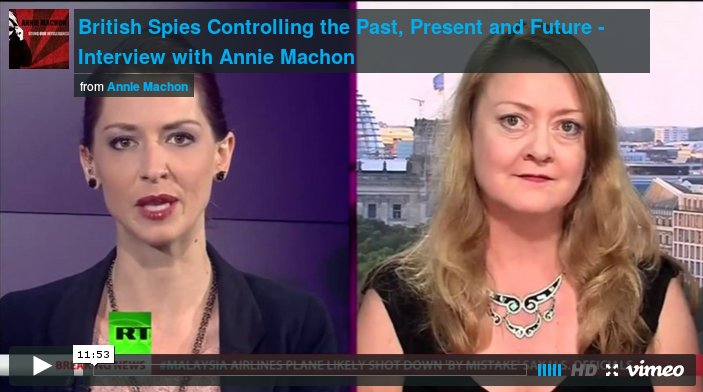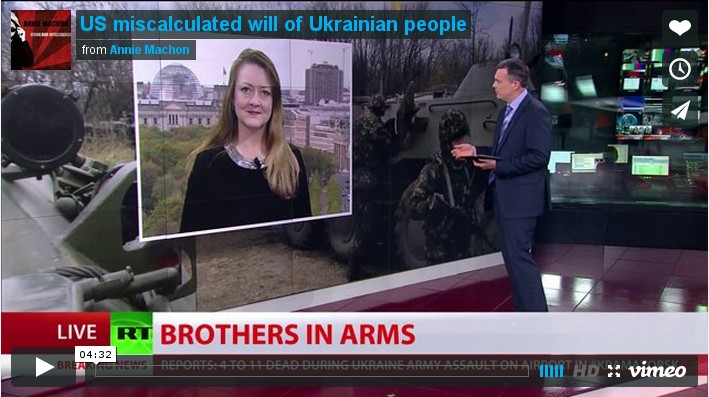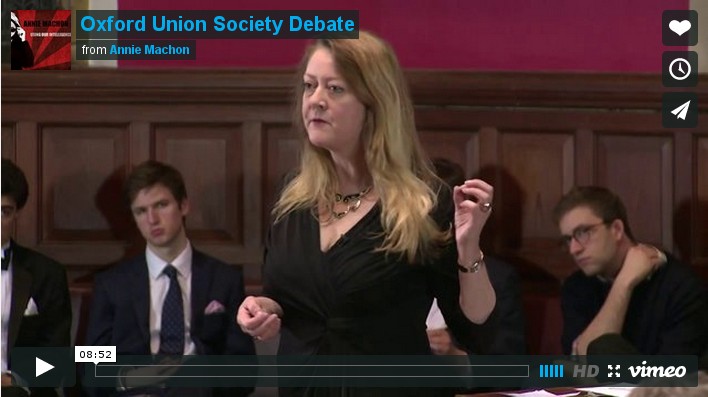Published on Consortium News on 16 January 2017.
The clash between plutocratic President-elect Trump and the CIA is shaping up to be the heavy-weight prize fight of the century, and Trump at least is approaching it with all the entertaining bombast of Mohammed Ali at the top of his game. Rather than following the tradition of doing dirty political deals in dark corners, more commonly known as fixing the match, Trump has come out swinging in the full glare of the media.
In that corner we have a deal-making, billionaire “man of the people” who, to European sensibilities at least, reputedly espouses some of the madder US domestic obsessions and yet has seemed to offer hope to many aggrieved Americans. However, it is his professed position on building a rapprochement with Russia and cooperating with Moscow to sort out the Syrian mess that caught my attention and that of many other independent commentators internationally.
In the opposite corner his opponents have pushed the CIA into the ring to deliver the knock-out blow, but this has yet to land. Despite jab after failed jab, Trump keeps evading the blows and comes rattling back against all the odds. One has to admire the guy’s footwork.
So who are the opponents ranged behind the CIA, yelling encouragement through the ropes? The obvious culprits include the US military industrial complex, whose bottom line relies on an era of unending war. As justification for extracting billions — even trillions — of dollars from American taxpayers, there was a need for frightening villains such as Al Qaeda and, even more so, the head choppers of ISIS. However, since the Russian intervention in Syria in 2015, those villains no longer packed so scary a punch, so a more enduring villain, like Emmanuel Goldstein, the principal enemy in George Orwell’s “1984”, was required. Russia was the obvious new choice, the old favourite from the Cold War play book.
The western intelligence agencies have a vested interest in eternal enemies to ensure both eternal funding and eternal power, hence the CIA’s entry into the fight. As former British MP and long-time peace activist George Galloway so eloquently said in a recent interview, an unholy alliance is now being formed between the “war party” in the US, the military-industrial-intelligence complex and those who previously would have publicly spurned such accomplices: American progressives and their traditional host, the Democratic Party.
Yet, if the DNC had not done its best to rig the primaries in favour of Hillary Clinton, then perhaps we would not be in this position. Bernie Sanders would now be the President-elect.
These establishment forces have also revealed to the wider world a fact long known but largely dismissed as conspiracy theory by the corporate mainstream media, that the two-party system in both the US and the UK is a sham. In fact, we are governed by a globalised élite, working in its own interest while ignoring ours. The Democrats, openly disgruntled by Hillary Clinton’s election loss and being seen to jump into bed so quickly with the spooks and the warmongers, have laid this reality bare.
In fact, respected US investigative journalist Robert Parry recently wrote that an intelligence contact admitted to him before the election that the intelligence agencies did not like either of the presidential candidates. This may go some way to explaining the FBI’s intervention in the run up to the election against Hillary Clinton, as well as the CIA’s attempts to de-legitimise Trump’s victory afterwards.
Whether that was indeed the case, the CIA has certainly held back no punches since Trump’s election. First the evidence-lite assertion that it was the Russians who hacked the DNC emails and leaked them to Wikileaks: then the fake news about Russia hacking the voting computers; that then morphed into the Russians “hacked the election” itself; then they “hacked” into the US electric grid via a Vermont utility. All this without a shred of fact-based evidence provided, but Obama’s expulsion of 35 Russian diplomats last month solidified this dubious reality in Americans’ minds.
All this has so far culminated, of course, in the “dirty dossier” allegations last week about Trump, which he has rightly knocked down — it was desperately poor stuff.
This last item, from a British perspective, is particularly concerning. It appears that a Washington dirt-digging company was hired by a Republican rival to Trump to unearth any potential Russian scandals during the primaries; once Trump had won the nomination this dirt-digging jobbery was then taken over by a Democrat supporter of Hillary Clinton. The anti-Trump investigation was then sub-contracted to an alleged former British spy, an ex-MI6 man named Christopher Steele.
Much has already been written about Steele and the company, much of it contradictory as no doubt befits the life of a former spy. But it is a standard career trajectory for insiders to move on to corporate, mercenary spy companies, and this is what Steele appears to have done successfully in 2009. Of course much is predicated on maintaining good working relations with your former employers.
That is the aspect that interests me most — how close a linkage did he indeed retain with his former employers after he left MI6 in 2009 to set up his own private spy company? The answer is important because companies such has his can also be used as cut-outs for “plausible deniability” by official state spies.
Of course, I’m not suggesting that happened in this case, but Steele reportedly remained on good terms with MI6 and was well thought of. For a man who had not been stationed in Russia for over 20 years, it would perhaps have been natural for him to turn to old chums for useful connections.
But this question is of extreme importance at a critical juncture for the UK; if indeed MI6 was complicit or even aware of this dirt digging, as it seems it might have been, then that is a huge diplomatic problem for the government’s attempts to develop a strong working relationship with the US, post-Brexit. If MI6’s sticky fingers were on this case, then the organisation has done the precise opposite of its official task — “to protect national security and the economic well-being of the UK”.
MI6 and its US intelligence chums need to remember their designated and legislated roles within a democracy — to serve the government and protect national security by gathering intelligence, assessing it impartially and making recommendations on which the government of the day will choose to act or not as the case may be.
The spies are not there to fake intelligence to suit the agenda of a particular régime, as happened in the run-up to the illegal Iraq war, nor are they there to endemically spy on their own populations (and the rest of the world, as we know post-Snowden) in a pointless hunt for subversive activity, which often translates into legitimate political activism and acts of individual expression.
And most especially the intelligence agencies should not be trying to subvert democratically elected governments. And yet this is what the CIA and a former senior MI6 officer, along with their powerful political allies, appear to be now attempting against Trump.
If I were an American I would be wary of many of Trump’s domestic policies. As a European concerned with greater peace rather than increasing war, I can only applaud his constructive approach towards Russia and his offer to coöperate with Moscow to staunch the bloodshed in the Middle East.
That, of course, may be nub of his fight with the CIA and other vested interests who want Russia as the new bogeyman. But I would bet that Trump takes the CIA’s slurs personally. After all, given the ugliness of the accusations and the lack of proof, who would not?
So, this is a world championship heavy-weight fight, over who gets to hold office and wield power, an area where the US and UK intelligence agencies have considerable experience in rigging matches and knocking out opponents. Think, for instance, Iranian Prime Minister Mohammad Mossadeq in 1953; Chilean President Salvador Allende in 1973; Iraqi leader Saddam Hussein in 2003; and Libyan leader Muammar Gaddafi in 2011. Syrian President Bashar al-Assad in Syria is punch-drunk but still standing, thanks to some good corner support from Russia.
However, it would appear that Trump is a stranger to the spies’ self-defined Queensbury Rules in which targets are deemed paranoid if they try to alert the public to the planned “régime change” or they become easy targets by staying silent. By contrast, Trump appears shameless and pugnacious. Street-smart and self-promoting, he seems comfortable with bare-knuckle fighting.
This match has already gone into the middle rounds with Trump still bouncing around on his toes and relishing the fight. It would be ironic if out of this nasty prize fight came greater world peace and safely for us all.






